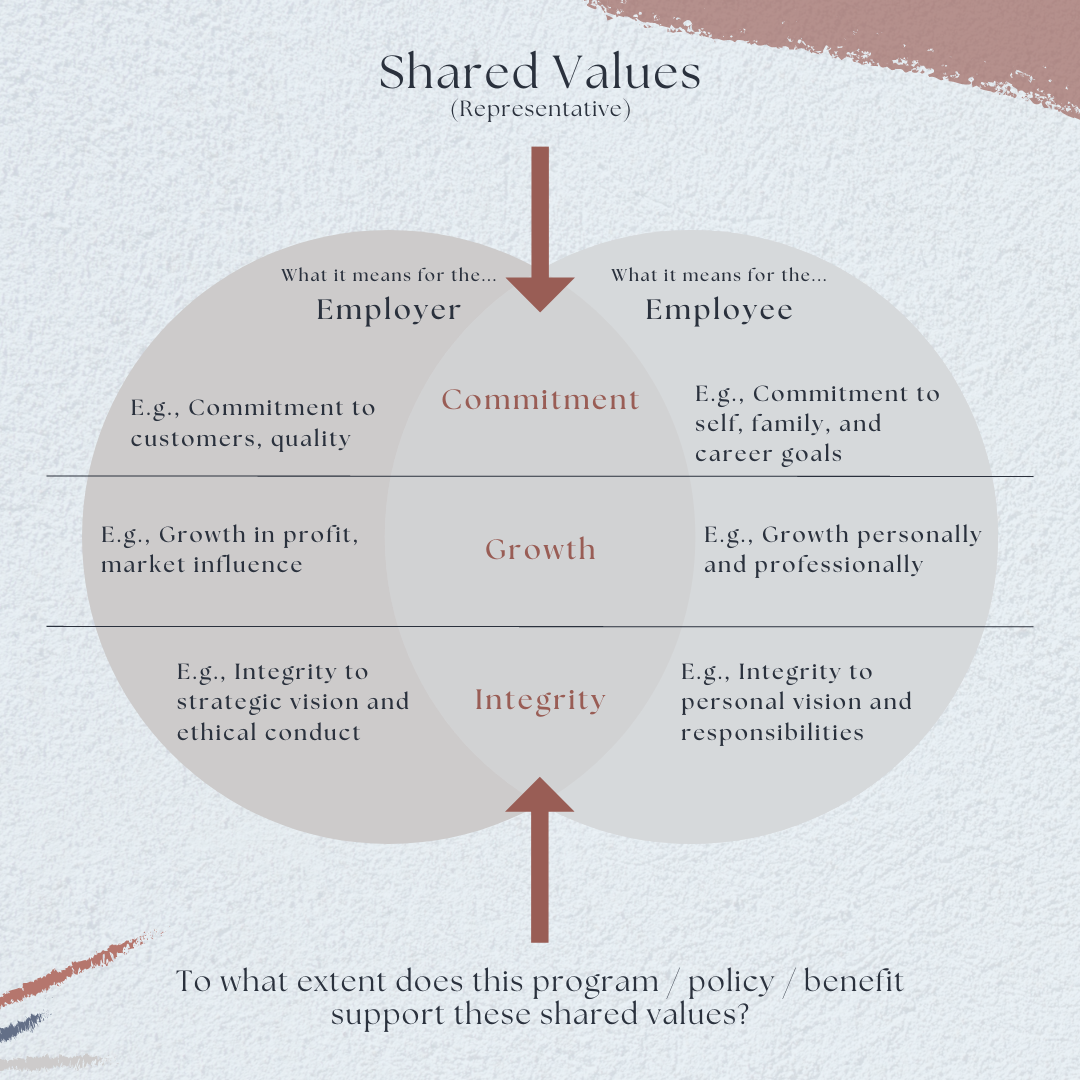It is time to move past “win-loss” thinking, reframe the conversation, and together make progress by building programs rooted in advancing our shared values.
In recent weeks, the topic of parental leave has shown up in multiple public forums, most notably in this Wall Street Journal article and this one from Glamour. These articles sparked both controversy and conversation on an important topic, with many boiling the issue down to an arms race over the length of parental leave. But this paints a false picture, with employers pitted against working parents in a battle where nobody wins. What if we reframe our thinking, and instead design parental leave programs guided by the shared values of both employers and employees?
Building on a base of shared values provides a framework with broad alignment across both employer and employee perspectives. For example, one commonly shared value is Commitment. For an organization, this may mean commitment to quality, customers, and success. For a working parent, it may be more about commitment to self, family, and career goals. At the heart of it, all can agree that Commitment is important.
Another example is Growth. For an organization, this may focus on the imperative to expand market influence or increase top-line performance. For a working parent, it may be more about developing a rewarding family and career life. At the heart of it, all can agree that Growth is important. The same can be played out for a whole range of other values. Integrity. Diversity. Communication. Trust. The list goes on.
Once an inventory of shared values has been defined, every step forward can be viewed as a potential win-win, because there is a basis for prioritizing the program elements. For example, in an environment where both employer and workforce value commitment, communication, respect, and growth, there should be alignment on the benefit components, including:
- Robust pre-leave planning to ensure all bases are covered while the employee is away (shared values: commitment, communication)
- Avoiding disturbing the employee with work-related questions / issues during leave (shared values: respect, commitment)
- Accommodation of new parent needs upon return such as pumping time and dedicated space, ability to respond to internal messages at odd hours, initial travel limitations, or work-from-home flexibility (shared values: communication, respect, commitment)
- Ensuring a clear return-to-work plan is in place that specifies topics such as return date and timing for a 1:1 meeting with a manager to review expectations and discuss career tracking (shared values: communication, commitment, growth)
When viewed through this lens, it is clear there are many ways parental leave policy and programs can support shared values, and in doing so deepen the employer-employee relationship.
For new parents, this helps make the transition back to work more optimistic, intentional, and manageable. For employers, it improves employee re-engagement, reduces burnout, and stems lost productivity. For both, there are significant implications for culture, sustainability, retention, and long-term success.
At Josie we utilize this framework with our clients to create win-win scenarios and land on better outcomes. We believe it is time to move past “win-loss” thinking, reframe the conversation, and together make progress by building programs rooted in advancing our shared values.
A better approach to crafting your benefits portfolio for working parents: Josie’s Shared Values Framework

